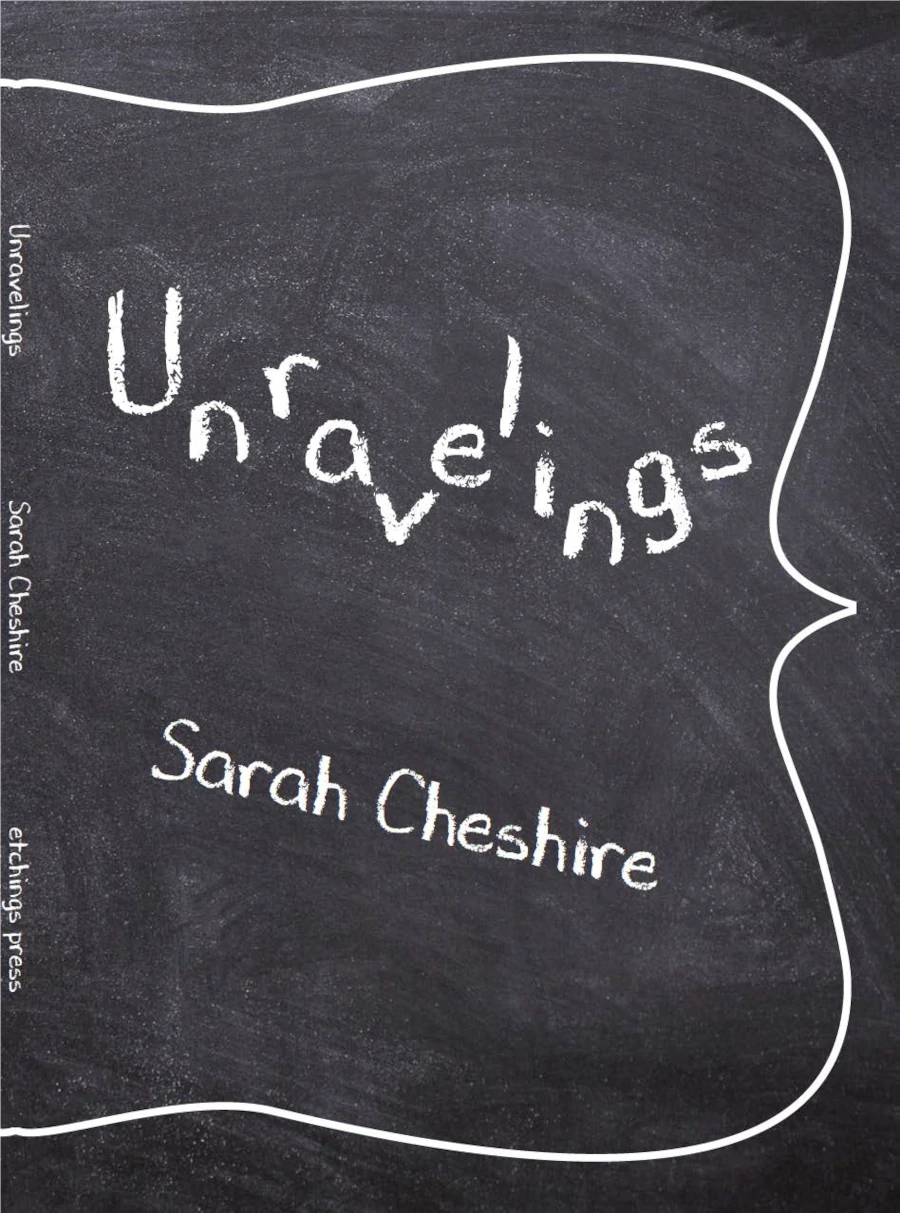
Unravelings, by Sarah Cheshire
Words By Alyssa Jordan
Unravelings, a lyrical memoir chronicling author Sarah Cheshire’s experience filing a Title IX procedure, is a slim volume of disturbing relevance to today’s sexual harassment call-out culture. Through fragmentation, flashbacks, and lyrical verse, Ms. Cheshire explores the nature of her relationship with her creative writing professor, a trusted mentor. The memoir does not shy away from uncomfortable moments, and in eschewing a linear narrative, it feels as if a safety net has been yanked out from under the reader. Without it, we are forced to confront our own perceptions and, in so doing, gain a whole new level of awareness.
Throughout the memoir, Ms. Cheshire struggles with one particular question: how do you write about something that isn’t there? Initially, her mentor instructs her to start writing a story by filling in the gaps and including details that surround key moments rather than simply explaining the moments themselves. In a dark, ironic twist, this question later becomes unnervingly relevant when her mentor outright denies her allegations. Every time Ms. Cheshire attempts to realign the narrative, she is met with manipulation and emotional gaslighting. It’s downright unsettling to read about this abuse of power. It’s twice as unsettling to witness the aftermath in body memory, in her struggle to make sense of the events that transpired.
The story combines beautiful prose with text messages and procedural notes. In a way, this style mimics Ms. Cheshire’s attempts to write a story by first filling in the gaps. On a subconscious level, it invites the reader to examine the grey areas of the situation, to learn to dwell in the murky and the abstract. Doing so makes it difficult to parse out the truth. Inappropriate behavior becomes muddled, and memories are questioned. This is especially apparent when the reader is given a glimpse into the true extent of the aftermath:
“I constantly feel like a round peg in a square hole, in my ripped tights and mismatched socks and constant confusion of networking with making friends, a social faux-pas which, years later, I realize is rooted in a history of having professional and personal lines blurred.”
The question remains: how do you write about something that feels so real—and so very personal—when you’re repeatedly told it never happened? Unravelings doesn’t offer any clear-cut answers. There isn’t real closure or a sense of finality. There isn’t a sense of completeness. In a way, we’re given the ending that Ms. Cheshire was given. We’re left gaping with her on the campus quad, struck by the sheer deception in her mentor’s actions. The ending is abrupt, but fitting. It leaves us stunned and unbalanced, and the final line only heightens our discomfort. Although upsetting, the lack of closure makes the work more memorable, as it ultimately pushes us to think deeper and look beyond our own perceptions. While Unravelings certainly doesn’t cover a light topic, it explores important subjects and themes that have become increasingly relevant.